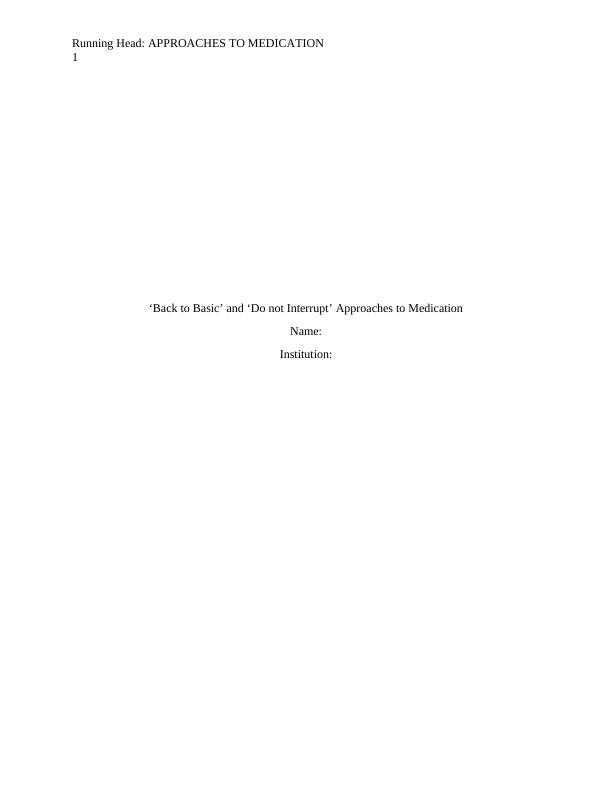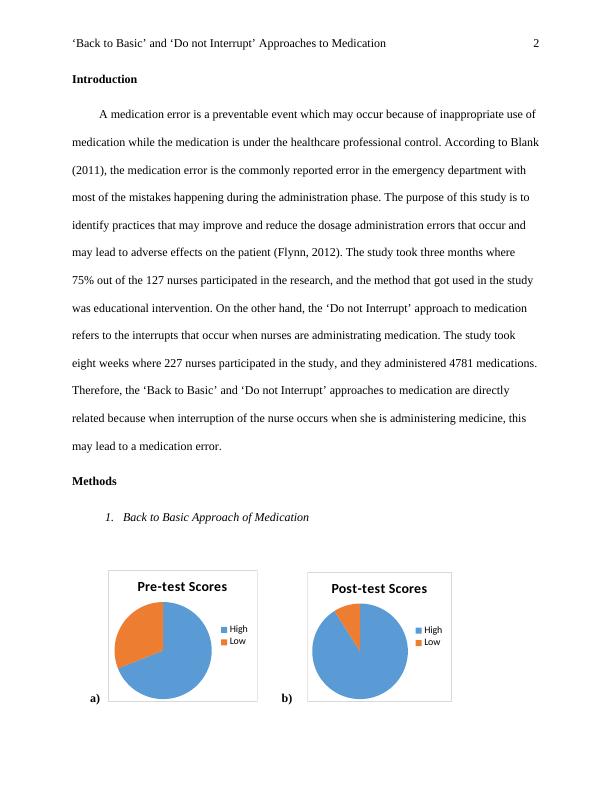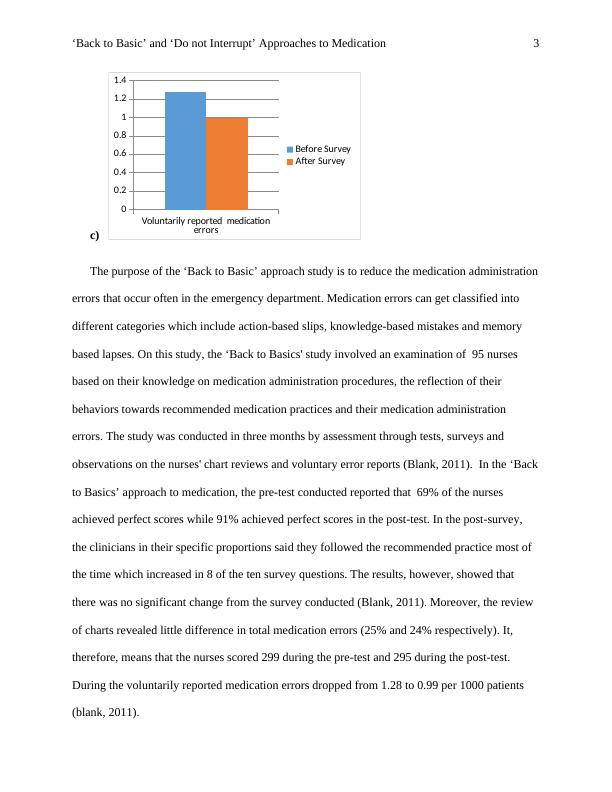Approaches to Medication: Back to Basic and Do not Interrupt
Added on 2023-06-13
8 Pages2234 Words124 Views
End of preview
Want to access all the pages? Upload your documents or become a member.
Contrast and Comparison of the Approaches to Medication
|8
|2201
|237
Article Critique on Medication Administration Safety in Public Hospitals
|10
|2570
|355
Nursing in Health and Social Care Sector Essay
|9
|2021
|37
Essay Analysis on Medication PDF
|7
|2191
|62
Critique Report on Two Articles on Medication Safety in Healthcare
|9
|2516
|167
Research Critique of Medication Interruptions on Clinical Errors and Procedural Failures among Nurses in a Metropolitan Teaching Hospital
|9
|2276
|181



